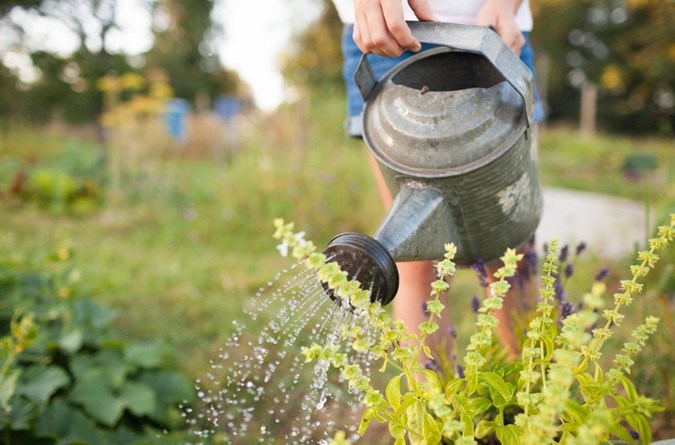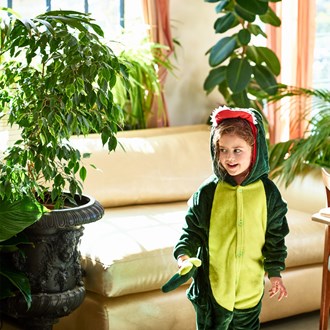Level 2 water restrictions: Everything you need to know

Starting tomorrow
By Kelly Burke
December 09 2019
As a pall of dust and ash continues to cloak much of NSW from raging bushfires, new water restrictions coming into effect across Sydney are going to make any sort of a clean-up slow going.
Level-two restrictions will start on Tuesday across Sydney, the Illawarra and the Blue Mountains, prohibiting the use of a hose to water the garden or wash the car, among other things.
Watch: Meghan and Harry arrive at drought-stricken property in Dubbo
And if the state does not receive significant rainfall before the end of February, the NSW government will move to implement level-three water restrictions, the NSW water minister, Melinda Pavey, warned on Monday.
What will level-three restrictions look like?
Nobody knows. The rules are still being drafted.
But Pavey said she was hoping it won't come to that.

Warragamba Dam level is at less than 50% full.
"I hope we get summer rain (but) it's always a watching brief - we have to look at the evidence, at the inflows, outflows," she said, adding that it was the government's hope the implementation of level-two restrictions will save almost 80 gigalitres of water.
Dam levels in the great Sydney area have fallen to below 45 per cent as Australia's worst drought in recorded history persists.
Level-three restrictions could kick in once those dams sink to 30 per cent.

Hosing of hard surfaces is not permitted, unless in an emergency.
Level-two restrictions
From Tuesday, millions of NSW residents must use a bucket or can instead of a hose when watering the garden or washing the car, activities that can only be carried out before 10am and after 4pm.
Refilling swimming pools and spas will be limited to 15 minutes a day, and residents will have to obtain a licence to fill up a new or renovated pool.
Under the restrictions:
- Gardens can only be watered before 10am or after 4pm with a watering can or bucket
- Smart and drip irrigation systems may only be used for 15 minutes before 10am or after 4pm
- The use of unattended hoses is no longer permitted
- Hosing of hard surfaces is not permitted, unless in an emergency
- Cars can only be washed with a bucket or at a commercial car wash
- A permit is required before filling a pool of any size
Fines of $220 will apply for residents and $550 for businesses who don’t follow the rules.
Although obviously difficult to police, people are also being asked to limit showers to four minutes.
"This is a real challenge for a lot of people, I understand that, but we do ask you to respect that," Pavey told reporters.
"We brought forward level-two restrictions because the size and scale of the drop of water into Sydney was unlike anything we've ever seen before."
Fines issued
7NEWS.com.au is seeking comment from Pavey on how strictly the new water rules will be policed while the bushfires continue to burn. (Drinking water and hoses are still allowed to be used for fire fighting purposes).
Sydney Water's executive drought lead, Catherine Port, said under current level-one restrictions, 120 warnings had been given and two fines issued for breaches.
Under level-two rules, breaches could attract fines of up to $220 for individuals and $550 for businesses.

Cars can only be washed with a bucket or at a commercial car wash.
Watch the buckets
Senior Lecturer at the University of Sydney's School of Civil Engineering Petr Matous told 7NEWS.com.au that replacing hoses with buckets for domestic use will only save water if people ration the buckets.
Around the Sydney area, the water pressure provided by Sydney Water is on average about 52m (the pressure equivalent to what a diver experiences 52 meters under water level).
The width of a hose (wider the circumference, higher the flow) and the length of the hose (longer in length, slower the flow) will also affect the amount of water used.
Swapping to buckets, if the pressure water connection is on the average to higher end of the usual range, say around 60m of head, the flow will be about 36 litres per minute, Matous calculated.

Gardens can only be watered before 10am or after 4pm with a watering can or bucket.
So a fully open garden tap would typically use roughly about two buckets of water per minute.
"Whether you use more water with buckets or a hose depends on how many buckets you would use or how many minutes you would use your hose when washing your car," he said.
"Obviously, it is possible to waste water by filling buckets one after another and splashing them on your car but the assumption behind the restrictions is that people would use their buckets more wisely.”













